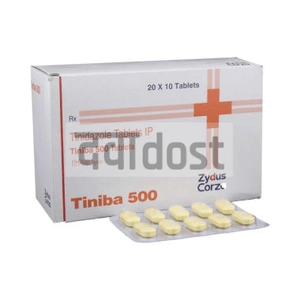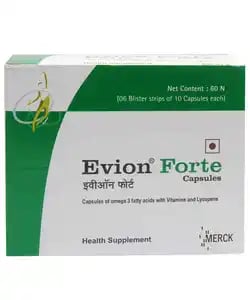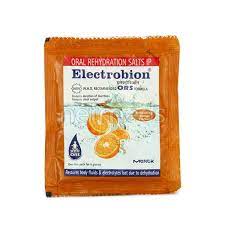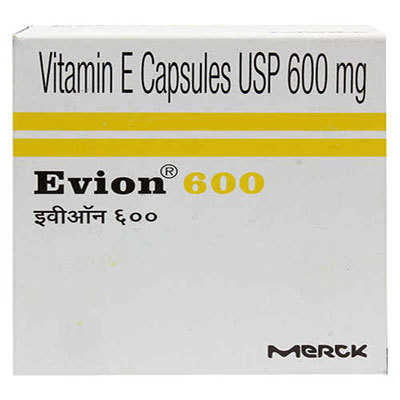tini TINIDAZOLE
Introduction to Tini
Tini is a widely-used medication known for its effectiveness in treating various infections caused by anaerobic bacteria and certain parasites. It belongs to the class of nitroimidazole antibiotics and is often prescribed for conditions like bacterial vaginosis, trichomoniasis, and giardiasis. Tini is available in multiple forms, including tablets, capsules, and injections, making it versatile for different treatment needs. Its active ingredient, Tinidazole, works by inhibiting the growth of bacteria and protozoa, thereby alleviating symptoms and speeding up recovery. This medicine is often chosen for its reliability and broad-spectrum activity.
Composition of Tini
The primary active ingredient in Tini is Tinidazole, present in a 300mg dosage per tablet or capsule. Tinidazole is a potent antimicrobial agent that works by disrupting the DNA synthesis of anaerobic bacteria and protozoa. This action effectively halts their growth and replication, leading to the resolution of infection. Tinidazole's mechanism of action is particularly useful in treating infections where oxygen is scarce, making it a preferred choice for anaerobic bacterial infections.
Uses for Tini
- Treatment of bacterial vaginosis
- Management of trichomoniasis
- Treatment of giardiasis
- Control of amoebic infections
- Prophylaxis for surgical infections
Side Effects of Tini
- Nausea and vomiting
- Metallic taste in the mouth
- Diarrhea
- Abdominal pain
- Headache
- Dizziness
Precautions for Tini
Before taking Tini, it is essential to inform your healthcare provider about any allergies or pre-existing conditions you may have. Avoid consuming alcohol during the treatment and for at least 72 hours after the last dose, as it can cause severe reactions. Pregnant or breastfeeding women should consult their doctor before using Tini. It is also crucial to complete the full course of treatment, even if symptoms improve, to prevent the development of antibiotic resistance.
Specifications of Tini
Tini is available in various forms to suit different patient needs:
- Tablets: Each tablet contains 300mg of Tinidazole, designed for oral administration.
- Capsules: Similar to tablets, these also contain 300mg of Tinidazole and are suitable for those who prefer capsules over tablets.
- Injection: Tini is also available as an injectable form for cases where oral administration is not feasible or in severe infections requiring immediate intervention.
Conclusion
Tini, with its active ingredient Tinidazole, is a powerful antibiotic effective against a range of infections caused by anaerobic bacteria and protozoa. Available in tablets, capsules, and injection forms, it offers flexibility in administration and ensures comprehensive treatment. While generally well-tolerated, it is important to be aware of potential side effects and precautions to ensure safe and effective use. Always follow your healthcare provider's instructions and complete the full course of treatment for the best outcomes.

Can I take Tini with other prescription drugs?
Tini can interact with certain medications, increasing the risk of side effects or reducing effectiveness. For example, it may interact with anticoagulants, increasing bleeding risk. Always inform your doctor about all medications you're taking to avoid potential interactions. Your doctor can adjust your treatment plan to ensure safety and effectiveness.

Can Tini be taken safely while breastfeeding?
Tini is not recommended while breastfeeding. It can pass into breast milk and may affect the nursing infant. If you need to take Tini, talk with your doctor about alternative treatments or consider temporarily stopping breastfeeding. Your doctor can help you make the best decision for you and your baby.

Can Tini be taken safely while pregnant?
Tini is not recommended during the first trimester of pregnancy due to potential risks to the developing fetus. Limited data is available on its safety in later pregnancy stages. If you're pregnant or planning to become pregnant, discuss with your doctor the safest treatment options for your condition.

Does Tini affect appetite?
Tini doesn't typically affect your appetite. Most people taking this medication don't notice changes in how hungry they feel. If you experience unexpected changes in your appetite after starting Tini, talk with your doctor. They can help determine if these changes are related to the medication or another cause.

Does Tini cause headaches?
Headaches can occur as a side effect of Tini, but they are not common. If you experience a mild headache, staying hydrated and resting may help. Over-the-counter pain relievers can also be used after consulting your doctor. If headaches are severe or persistent, contact your healthcare provider to determine if they are related to Tini or another cause.

Does Tini cause stomach upset?
Tini can cause stomach upset, including nausea, vomiting, or diarrhea. These side effects are occasional and usually mild. Taking Tini with food may help reduce stomach discomfort. If you experience severe or persistent stomach issues, contact your doctor. They can help determine if these symptoms are related to Tini or another cause.

Does Tini limit driving?
Tini can cause dizziness or light-headedness, which may impair your ability to drive safely. If you experience these symptoms, avoid driving until they subside. When you first start taking Tini, pay attention to how your body responds before getting behind the wheel. Always prioritize safety and consult your doctor if you have concerns.

Does Tini make people tired or drowsy?
Tini can cause fatigue or drowsiness in some people, but these effects are not common. If you feel unusually tired while taking Tini, talk with your doctor. Your tiredness might be caused by another factor, and your doctor can help determine the best course of action. Ensure you get enough rest and maintain a balanced diet.

For how long do I take Tini?
Tini is usually taken for a short-term treatment of acute infections. The duration depends on the condition being treated, ranging from a single dose to several days. Always follow your doctor's instructions regarding the length of treatment. Completing the full course is important to ensure the infection is fully treated.

How does Tini work?
Tini works by disrupting the DNA of bacteria and parasites, which stops them from growing and multiplying. This action helps eliminate the infection from your body. Think of it like cutting off the power supply to a machine, causing it to stop working. Tini is effective for treating certain bacterial and parasitic infections.

How do I know if Tini is working?
Tini is used to treat infections. You'll know it's working when symptoms like pain, discharge, or fever improve. For some infections, your doctor may perform tests to confirm the infection is clearing. Regular check-ups are important to ensure the medication is effective. Always follow your doctor's advice and complete the full course.

How do I take Tini?
Take Tini as prescribed by your doctor. It's usually taken once daily, with or without food. Swallow the tablet whole; do not crush or chew it. If you miss a dose, take it as soon as you remember unless it's almost time for your next dose. In that case, skip the missed dose and continue your regular schedule. Avoid alcohol while taking Tini, as it can cause unpleasant side effects.

How long does it take for Tini to start working?
Tini starts working shortly after you take it, but the time to notice improvement varies. For some infections, symptoms may improve within a few days. Full therapeutic effects depend on the infection type and severity. Always take Tini as prescribed and complete the full course for the best results.

How should I store Tini?
Store Tini at room temperature, away from moisture and light. Keep it in a tightly closed container. Do not store it in the bathroom, where humidity can affect the medication. Always keep Tini out of reach of children and pets. Check the expiration date regularly and dispose of any expired medication properly.

Is it safe to drink alcohol while taking Tini?
Avoid alcohol while taking Tini and for at least three days after finishing the medication. Alcohol can cause a reaction with Tini, leading to nausea, vomiting, and flushing. This reaction is similar to what happens with disulfiram, a medication used to treat alcohol dependence. Always follow your doctor's advice regarding alcohol use.

Is it safe to exercise while taking Tini?
You can exercise while taking Tini, but be mindful of side effects like dizziness or stomach upset. These might affect your ability to exercise comfortably. If you feel unwell during physical activity, slow down or stop and rest. Always listen to your body and consult your doctor if you have concerns.

Is Tini effective?
Tini is effective in treating certain infections caused by bacteria and parasites. It works by disrupting the DNA of these organisms, leading to their death. Clinical studies support its effectiveness for conditions like bacterial vaginosis and certain parasitic infections. Always follow your doctor's instructions for the best results.

Is Tini safe for the elderly?
Elderly individuals may be more sensitive to the side effects of Tini, such as dizziness or stomach upset. It's important to monitor for these effects and adjust the dose if necessary. Always consult with a healthcare provider to ensure Tini is safe and appropriate for elderly patients.

What are Tini possible harms and risks?
Common side effects of Tini include a metallic taste, nausea, vomiting, loss of appetite, constipation, stomach pain, headache, and dizziness. Serious side effects, though rare, include seizures, numbness or tingling, rash, and difficulty breathing. If serious side effects occur, seek medical attention immediately.

What disease or symptom is Tini used for?
Tini is used to treat infections caused by bacteria and parasites. It's effective for conditions like bacterial vaginosis, trichomoniasis, and certain parasitic infections. Tini helps by killing the organisms causing the infection. It can be used alone or with other therapies, depending on the specific condition being treated.

What is the usual dose of Tini?
The usual dose of Tini for adults is 2 grams taken once daily. The duration of treatment depends on the condition being treated. For certain infections, a single dose may be sufficient, while others may require a longer course. Always follow your doctor's specific dosing instructions. Dose adjustments may be necessary for children or the elderly.

What is Tini?
Tini is an antibiotic used to treat certain infections caused by bacteria and parasites. It works by disrupting the DNA of these organisms, leading to their death. Tini is commonly used for conditions like bacterial vaginosis and certain parasitic infections. It is often used alone but can be part of a combination therapy.

Who should avoid taking Tini?
Do not take Tini if you're allergic to it or similar medications. It's contraindicated in the first trimester of pregnancy due to potential harm to the fetus. Avoid Tini if you have a history of blood disorders. Always inform your doctor of your medical history to ensure safe use.
Available in 4 variations

Tini 150mg Suspension
bottle of 60 ml Suspension

Tini 300mg Tablet
strip of 10 tablets

Tini 500mg Tablet
strip of 10 tablets

Tini DS 1000mg Tablet
strip of 2 tablets















.svg)
